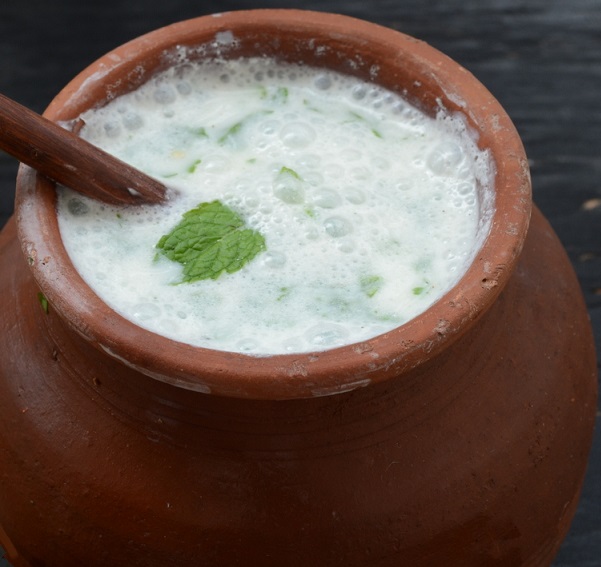Ramanwadi is the site of ISKCON’s village develop ment program called Venu- Madhuri. As soon I reached the place during my first visit, local villagers lovingly offered me chaas, or buttermilk. One of them explained the process of making it: “We have cows of local breed that go to the forest for grazing. We milk them using our hands, not with milking machines as they do in commercial dairy farms. This milk is then handchurned and we produce buttermilk, yogurt and ghee out of it. According to ayurveda, such milk products are the healthiest and the purest.”

I was initially hesitant, as I was not sure about its quality. Rupa Vilasa Dasa, the project manager, sarcastically warned me, “Beware! City dwellers that are used to consuming chemicalinfested foods may fall sick upon drinking this pure natural drink.” I felt ashamed of my artificial urban upbringing, which was so disconnected from the workings of Mother Nature.
A current of soothing coolness permeated my body as I drank the full glass of chaas. I had never tasted such a nectarine drink in my life. The taste of all major soft drinks, with their artificial sweeteners, paled in comparison to it. Fortunately, I did not fall sick after drinking it.
Leading a reckless lifestyle, we never think twice before gulping down the daily consumables. Fast foods, carbonated drinks and other junkies, which are known for their dangerous processing methods, have become a part of our daily life. Even harmless foods like milk, food and vegetables now pose a great danger: most of them are carriers of dangerous chemicals that can destroy our precious health.
Most ISKCON devotees I know are based in cities, where it is impossible to follow a natural living. We may not be able to move to villages and live in harmony with nature, but at least we must try to avoid consuming harmful items that can seriously damage our health. And if we do a little research, we may even find suppliers who supply healthy, natural products.
Having gotten used to so many artificial foods, our bodies react when something pure and natural goes in. When one of my friends living in Mumbai went to a village, he was offered a glass of pure cow milk. But unfortunately his stomach couldn’t digest it, and he got dysentery. Only after he took milk mixed with enough water could his stomach recover from the illness.
We seem to have forgotten what it means to live purely and happily. People in today’s times consider having a car, bungalow, or gadgets to be opulence. But according to Vedic culture, real opulence lies in living in natural surroundings, amidst cows, nature, pure oxygen and flowing water. Urbanites may reject this as primitive, but being “primitive” may give us answers to most of the problems that modern cities face. What was available in plenty a few decades ago has now become a luxury, even a rarity, in today’s times. Prices of essential ingredients like milk, grains and vegetables have skyrocketed. Even pure drinking water comes with a price.
We need to shift our mindsets and change our attitudes. Cow dung, for example, has been scientifically proved to have several antiseptic properties. Ignorant of its purity, many of us feel disgusted to touch it and work with it. We spend years living in congested polluted cities, often skip a bath, but prefer to live an artificial life of purity based on perfumes and deodorants.
One time Srila Bhaktisiddhanta Sarasvati Thakura was explaining how in Burma they have a drink called naphi. People keep special pots into which they place dead bodies of animals, which are then left to decompose. After some years, the fluids are drained and bottled to be drunk at festivals.
When Bhaktisiddhanta’s men came to Rangoon and were cooking puris in pure ghee to offer to the Deities, the neighbors complained about the “horrible smell.” This is sickness of purity.
Eating pure food has a subtle effect on our mind and consciousness. As the scriptures declare, ahara-suddhau sattva-suddhiu sattva-suddhau dhruva smatiu smatilambhe sarvagranthinaa vipramokhau. By eating sanctified foodstuffs one’s very existence becomes purified; by the purification of existence finer tissues in the memory become sanctified, and when memory is sanctified one can think of the path of liberation.
Rajagopala Dasa is the subeditor of Jau Devachiya Gava, Back to Godhead’s Marathi edition.
